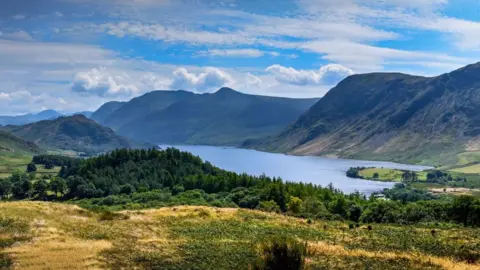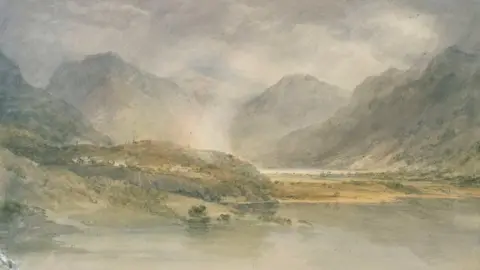Turner revered Lake District landscape bought for £200K
 National Trust
National TrustThe National Trust has paid £202,000 for a Lake District landscape immortalised by painter JMW Turner.
Brackenthwaite Hows was popular with Georgian and Victorian tourists, and a young Turner captured the view from the hill in a 1797 watercolour.
The trust has now acquired 77 acres of woodland and heathland, which is renowned for its wildflowers and wildlife, including rare red squirrels.
The charity said it would improve access to an existing viewing station.
Turner turned to landscape painting at the age of 17, in 1793, looking for inspiration at home in the UK, including the Lake District, before travelling abroad through Europe.
His 1797 watercolour Crummock Water Looking Towards Buttermere from the viewpoint formed the basis of a later oil painting of the dramatic vista.
 National Trust
National TrustTom Burditt, general manager for the National Trust in the North Lakes, said: "We know it was visited by Turner and formed a popular stopping off point for early Lake District tourists in the Georgian and Victorian eras.
"We'll work hard to support this area of high cultural and ecological importance, which neighbours woodland, fells and lakes that we already look after.
"We plan to maintain its mosaic of veteran and younger trees and heathland habitats which provide a haven for rare birds, bluebells and red squirrels."
The land purchased by the trust was previously in multiple ownership, with two of the owners, Ruth and David Hill, gifting their share.
The couple said in a statement: "We have owned and cared for a share of Brackenthwaite Hows since 1990.
"During that time, we were privileged to maintain the property and walk this magical summit in all seasons.
"We always wanted the National Trust to look after the property as we felt they would be the best possible custodian of its heritage."
